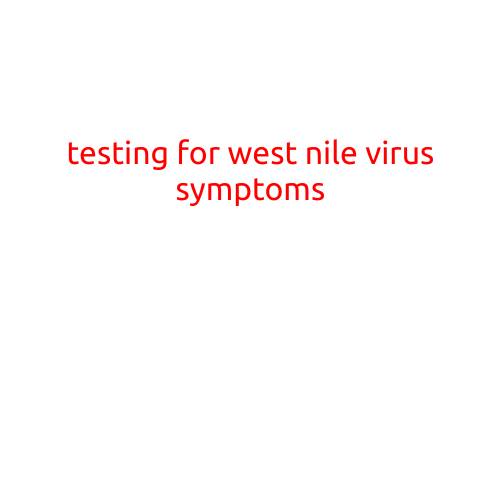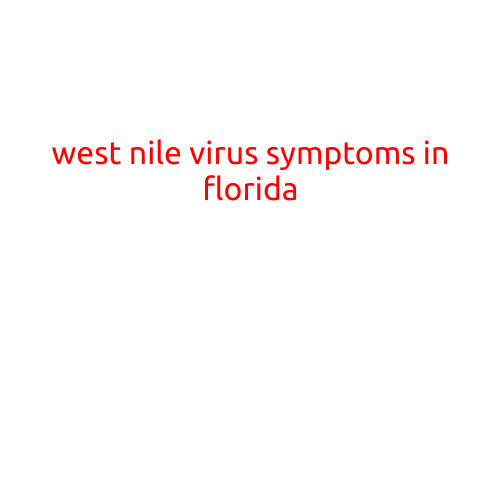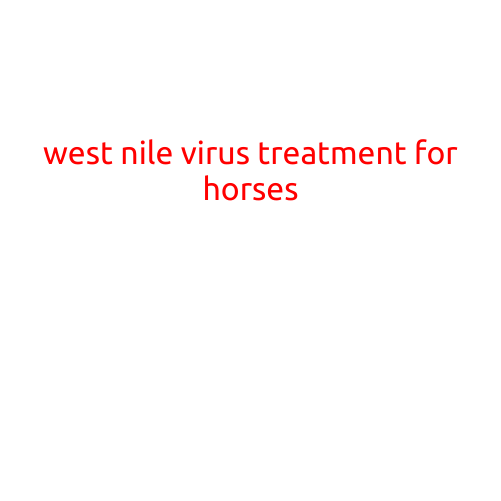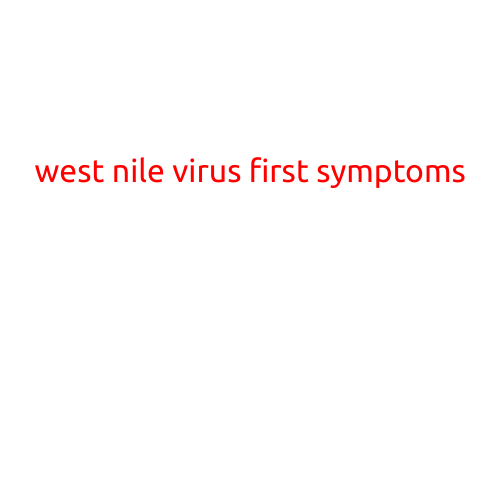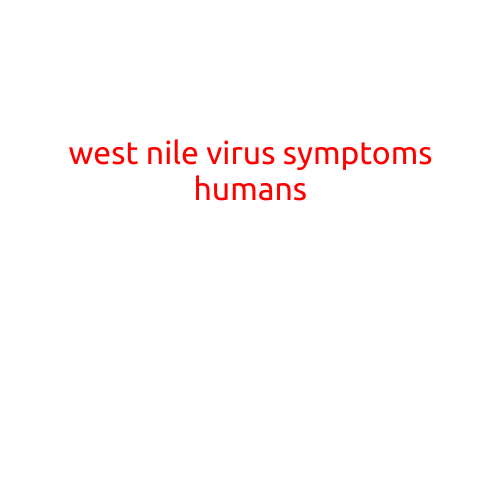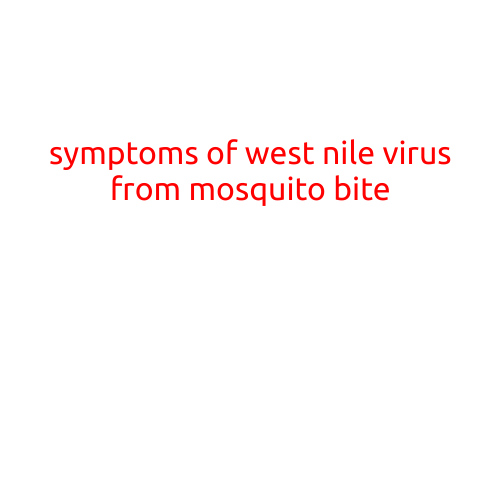
Symptoms of West Nile Virus from Mosquito Bite
West Nile virus (WNV) is a potentially serious and even deadly viral infection that is transmitted to humans through the bite of an infected mosquito. While most people who become infected with WNV do not develop severe symptoms, some individuals may experience a range of symptoms that can vary in severity. In this article, we will explore the common symptoms of West Nile virus from a mosquito bite.
Common Symptoms of West Nile Virus
WNV symptoms can vary from person to person and can range from mild to severe. The most common symptoms of WNV include:
- Fever: A high or low-grade fever is one of the most common symptoms of WNV, and it can occur anywhere from 2-14 days after being bitten by an infected mosquito.
- Headache: A headache is another common symptom of WNV, and it can range from mild to severe.
- Body Aches: Many people who are infected with WNV experience body aches, which can be similar to those experienced during the flu.
- Rash: Some individuals may develop a rash on their body, which can resemble a mosquito bite or a measles-like rash.
- Numbness or Tingling: In some cases, WNV can cause numbness or tingling in the hands and feet.
- Confusion: Confusion is a rare but serious symptom of WNV, and it can occur in individuals who are experiencing severe illness.
- Seizures: Seizures are another rare but serious symptom of WNV, and they can occur in individuals who are experiencing severe illness.
- Muscle Weakness: Muscle weakness is a symptom of WNV that can occur in individuals who are experiencing severe illness.
Severe Symptoms of West Nile Virus
In rare cases, WNV can cause severe symptoms that require immediate medical attention. These severe symptoms include:
- Meningitis: WNV can cause meningitis, which is an infection of the membranes surrounding the brain and spinal cord. This can lead to severe headaches, stiff neck, and confusion.
- Encephalitis: Encephalitis is an infection of the brain that can occur in individuals who are infected with WNV. This can lead to severe headaches, confusion, and altered mental status.
- Guillain-Barré Syndrome: WNV can cause Guillain-Barré Syndrome, which is a rare autoimmune disorder that can occur in individuals who are infected with WNV. This can lead to muscle weakness, tingling, and paralysis.
- Life-Threatening Illness: In rare cases, WNV can cause a life-threatening illness that requires hospitalization and close medical monitoring.
Reducing the Risk of West Nile Virus
While WNV is a serious illness, there are several steps you can take to reduce your risk of getting infected:
- Use insect repellent: Use insect repellent that contains DEET, picaridin, or oil of lemon eucalyptus when outdoors.
- Wear protective clothing: Wear long-sleeved shirts, long pants, and socks when outdoors to minimize exposed skin.
- Avoid peak mosquito hours: Mosquitoes are most active during dawn and dusk, so it is best to avoid outdoor activities during these times.
- Eliminate standing water: Eliminate standing water around your home and yard to reduce the risk of mosquito breeding.
Conclusion
West Nile virus is a serious illness that can be transmitted to humans through the bite of an infected mosquito. While most people who become infected with WNV do not develop severe symptoms, some individuals may experience a range of symptoms that can vary in severity. By understanding the symptoms of WNV and taking steps to reduce your risk of getting infected, you can help protect yourself and your loved ones from this potentially serious illness.
